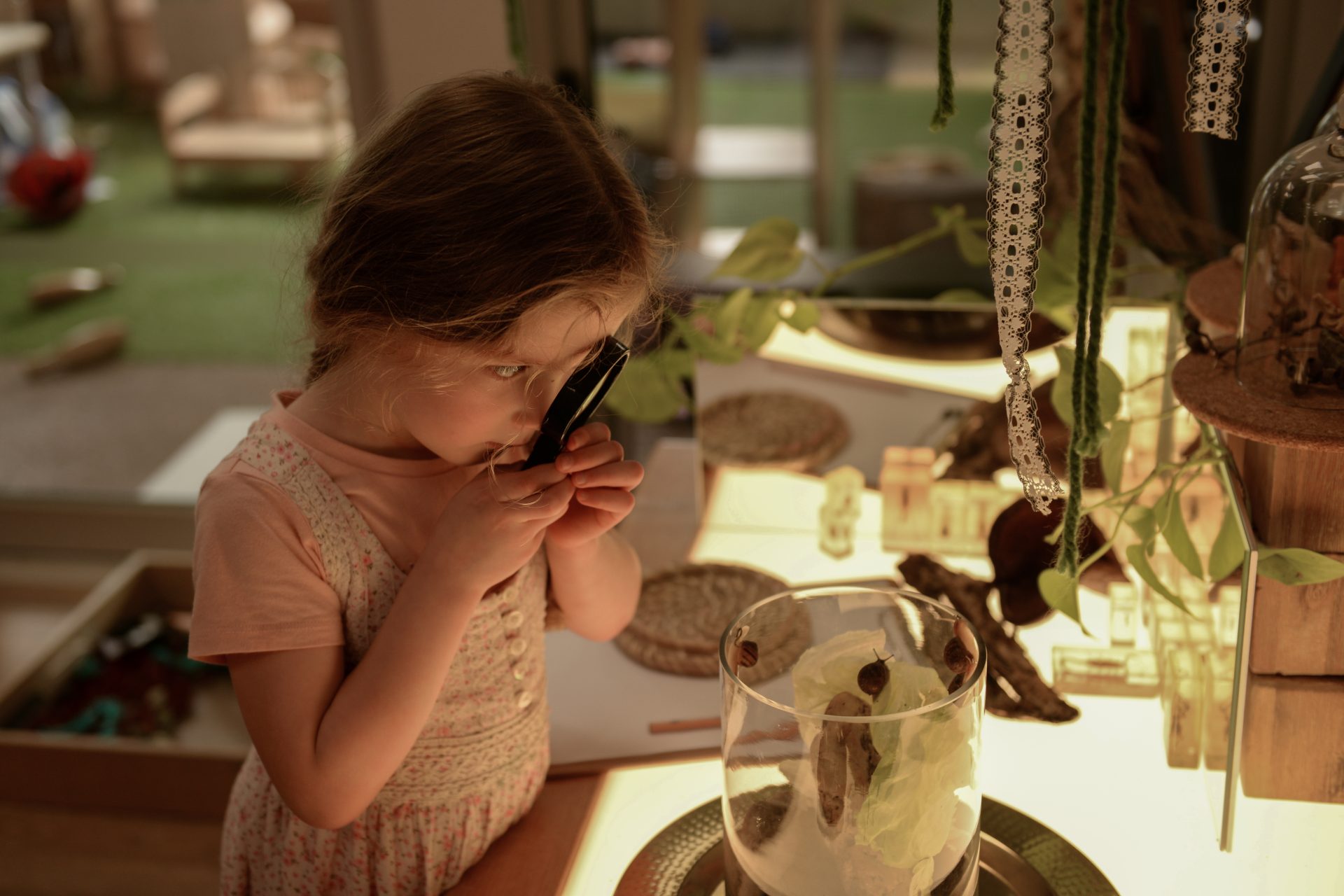
Curiosity! The desire to further explore an object, concept or method, isn’t something we need to teach children – it’s an inherent part of being human. However, what they do need are the opportunities, environment and guidance that encourage such interest. Such landscapes promote discovery of the world around them - self-guided learning that follows a path unique to their interests.
One of the driving features of the Reggio Emilia approach is that children are the architects of their own learning. Their natural inquisitiveness is promoted by providing open-ended materials that allow them to embark on projects driven by personal appeal. The learning environment isn’t structured. Instead, Reggio Emilia teachers observe and gently guide each individual, letting them dictate the journey and outcomes.
Intelligent materials and a fluid curriculum
Natural curiosity is dynamic. An interest in one thing evolves along a personalised path, often leading to random – but interconnected – discoveries.
In the Reggio Emilia setting, this is encouraged through intelligent, or open-ended, materials. These are items that provide a child with unlimited options, creating opportunities that are unique to whatever piques their interest. Examples include:
- Sand (or a sand pit)
- Paints
- Crayons
- Play-Doh
- Water
- Building blocks
- Natural materials, such as flowers, feathers, twigs and pebbles.
- Buttons
- Fabrics and materials.
- Musical instruments.
- Foodstuffs, ingredients, herbs etc.
In short, objects that promote sensory discovery. It’s why you’ll see abundant natural materials within a Reggio Emilia classroom. These are far more interesting to look at, touch and smell than plastic. Even the simple act of sitting at a wooden table, with its different hues, knots, curves and bumps is far more thought-provoking than a dull expanse of plastic.
Such items stimulate multiple senses. From the gritty feel of sand to the roughness of twigs, the fragrance of flowers to the colours of paints and crayons, children can use and play with them how they choose. No two minds are alike – the journey of one child will likely be very different from those of their peers.
Early learning educators in the Reggio Emilia environment are highly skilled at noticing the direction of interest and adapting the curriculum in response. In addition, such open learning environments also nurture social interactions. This often leads to larger-scale projects that span days, weeks or even months, with input from other pupils or even the whole classroom. But the key element is that the direction is wholly influenced by the child (or children), with the teacher playing only a guiding role and not dictating the outcome.
Such provocations – something that stirs up interest and stimulates further exploration – create a truly delightful educational model. The building blocks of future education are rooted in these crucial early years. Developing a love of learning stems from indulging natural curiosity. The provision of materials that actively encourage this is key - it’s the very meaning of the Reggio Emilia concept of,
The environment is the third teacher.
Being encouraged to let their curiosity meander in whatever direction they choose cultivates a desire to find out more. In combination with the other core concepts of the Reggio Emilia approach – the child as the protagonist, the hundred languages of children, collaborative work between children, teachers and parents, and the teacher as the researcher and co-learner – young students are provided with the ultimate starting blocks of a lifetime of fulfilment and success.
At Evoke Early Learning, our childcare philosophy is centred around these key Reggio Emilia principles. From nursery, through toddler to kindy, our team is dedicated to creating the very best preschool environment for our children.
Book a tour to come and see us in action – our friendly team would love to show you our wonderful early learning environment.

Tracey is a highly qualified educator and administrator and brings a strong combination of academic achievement, extensive work experience in the education and business sectors as well as drive and passion to her role as General Manager of Operations at Evoke Early Learning.
Tracey has a Master of Education and an Advanced Diploma of Business and holds VIT Dual Registration to teach in Early Childhood and Primary School settings. She’s also a VIT Trained Mentor Teacher and has worked in ECEC settings as a Director, Educational Leader and as a Victorian Senior Area manager. Her recognition as a state finalist in the recent Director of the Year Awards is testament to her achievements in the early education sector.
Her extensive work experience also included a stint as Head of Curriculum at the Royal Children’s Hospital Education Institute and positions as head of ICT at a number of large primary and secondary schools. Tracey is also experienced in not-for-profit sessional kindergarten settings and long daycare environments, so she has a deep understanding of what’s required to support the needs and expectations of young children, educators, parents and caregivers.
Tracey is responsible for operational management at Evoke Early Learning’s Clayton centre in Oakleigh East and their Albert Park centre in South Melbourne and is deeply committed to leading and driving effective and sustainable service delivery throughout the company.
Tracey is passionate about making a meaningful difference to young children, their parents and the wider community and under her expert guidance, Evoke Early Learning is continuing to raise the bar in quality early education and childcare.


